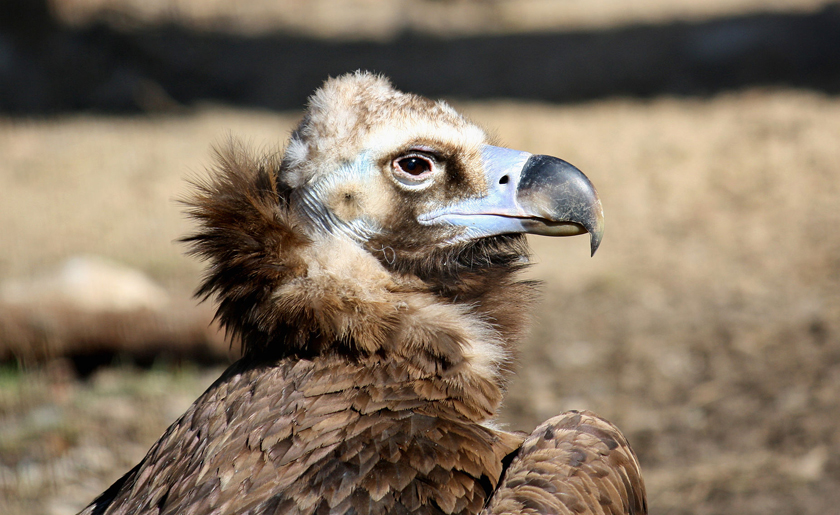To Vultures, Pathogens Are As Good As Pizza Toppings
Genome sequencing reveals inherited traits that allow the tummies of these birds to melt bones and digest microbes.
By Vicki Croke

A cinereous vulture at the Prague Zoo. The acids in these birds’ stomachs can “melt bone.” Photo: Packa/Wikimedia Commons.
Vultures like to eat really gross stuff. And no matter how putrid the food is, it seems to agree with them. A new study this week shows that they come by their iron constitutions naturally. It’s in their DNA.
That’s according to the results of the first sequencing of the Eurasian vulture genome, which was published yesterday in the open access journal Genome Biology. The authors of the paper found that vultures possess a “unique genetic make-up allowing them to digest carcasses and guard themselves against constant exposure to pathogens in their diet,” according to a statement from the publisher, Biomed Central.
The vulture species that the scientists analyzed is the cinereous vulture or black vulture, Aegypius monachus, a bird found across Southern Europe and Asia. This species is one that “plays a key role in the ecosystem by removing rotting carcasses, thus preventing the spread of disease.”

These are big vultures, and the females can weigh up to 31 pounds. Photo: Juan Lacruz/Wikimedia Commons.
With 10-foot wingspans, black vultures are perhaps the largest birds of prey, and by consuming as much decaying flesh as they do, they come into constant contact with pathogens and microbes.
But items that would kill us don’t even cause indigestion for these tough birds. According to an article by Will Dunham at Reuters:
“It is known that they are all but immune to botulism and that they can happily eat the flesh of an animal coated in Bacillus anthracis that causes anthrax,” said geneticist Jong Bhak of South Korea’s Ulsan National Institute of Science and Technology.
“They also are known to take infected food with rabies, hog cholera and numerous other diseases that would be lethal to most other scavengers.”
This vulture may have the strongest stomach in the world, Bhak said. “They have an extremely acidic stomach, enough to melt bones and perhaps metals,” Bhak added.
It seems their genetic blueprints have armed them.
Jong Bhak said in a statement from Biomed Central: “This is the first Old World vulture genome that has been reported, and we can see that the cinereous vulture has genetic signatures for resisting infection from eating decaying flesh.”
It’s true that vultures help humans by cleaning up our environment, but the researchers of the paper think the birds can help us in other ways too. “Understanding the genetic make-up of extreme life forms has potential for improving human health,” says Jong Bhak. “The immune system genes we’ve identified could be useful targets in humans for protection against infection.”
The researchers also discovered that cinereous vultures are more closely related to bald eagles than previously thought. The investigators compared the genetic makeup of the two species “to find genetic signatures of the dietary and environmental adaptations that help enable the vulture’s scavenging lifestyle.”
